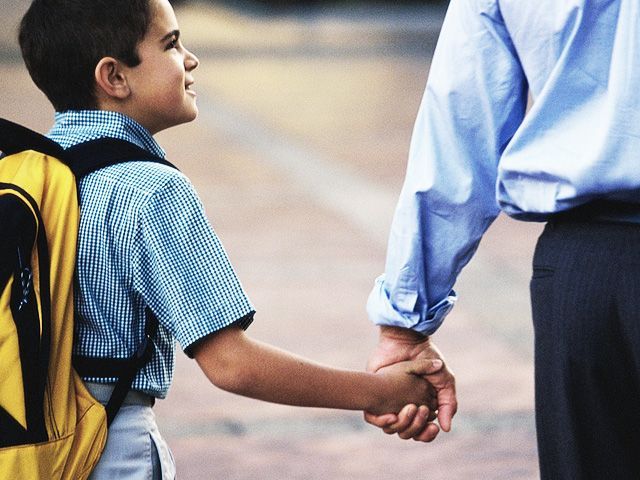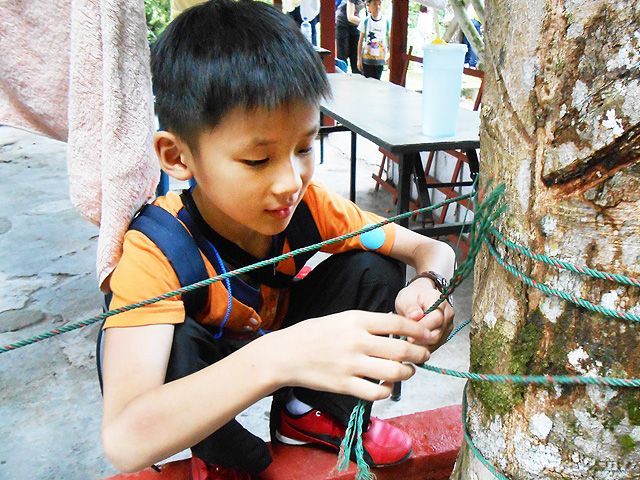 The consulting psychologist supervisor, Ms Lee Li Li, shares about the topic “Learn to let go” at 12pm at Ai FM (Live) on 6th September 2017.
The consulting psychologist supervisor, Ms Lee Li Li, shares about the topic “Learn to let go” at 12pm at Ai FM (Live) on 6th September 2017. During the growth stage of children, worries of parents often being over prioritized and this causes parents always refuse to let their child to learn independently. In fact, it is a mandate and vital for parents to learn a lesson on the act of letting go. Parent’s letting go is able to make way for child to be behaviorally and cognitively independent.
During the growth stage of children, worries of parents often being over prioritized and this causes parents always refuse to let their child to learn independently. In fact, it is a mandate and vital for parents to learn a lesson on the act of letting go. Parent’s letting go is able to make way for child to be behaviorally and cognitively independent.Things to take note by parents before letting go?
1. Parents should ensure that they have cultivated sufficient of love, care and affectional bond with their children before letting go. The so-called affectional bond (intimate relationship) is not just the physical touch, but a feeling. If there is no affectional bond in parent-child relationship, child may be trembling, afraid that he cannot perform well or fear of getting scold during the process of letting go as well as decision making.
2. Parents can assess child’s independence level before choosing to let go. Besides from behaviorally independent, cognitively independent is much more vital. This is due to the fact that child can be shaped to be behaviorally independent by complying the elements that have being set by others to be independent.
However, this results children behave according to template instead of their own decision-making. Independence does not limit to self-care, but the ability of problem solving beyond their comfort zone.Parents should prioritize on cultivating a cogitative independent child, child who is able to adapt to any circumstance especially in an unfamiliar place. For instance, if a child knows how to stay still on the boat, but when the boat has a problem, can the child have the ability to think of a solution?
Five key points on How to Let Go
 1. Provide opportunities to try
1. Provide opportunities to tryIn the process of letting go, parents should give children the opportunity to try, by providing guidance, care, and advice at the same time. After establishing affectional bond and trust, coordinating with child’s exploration and psychological development in growth stage, the golden period to practice letting go is at the age of 2 to 3 years old. In this age of time, child is still within sight of the parents (e.g. at home) and in a safe boundary where parents don't have to worry about the danger that might be caused by letting go.
2. Giving choices
For example, parents have to let go after parents agreed when child make their choice in the parent-child relationship. Parents may supervise from the side, don't clap your hands on either right or wrong except when their is obvious danger. It is child’s decision to walk their own, parents don't need to help. Let the child go and satisfy their exploratory desires.
3. Instilling values
In the early stages of letting go, children need to know what he should responsible for. If the child falls, let him to stand up on his own. This is to instill values on children (e.g., responsible for your choice). Children may become indulgence and have no self-discipline if let go is done without instilling values (e.g., staying up late at night, not doing homework).
4. Encourage children
When the child falls down or cry, parents can constantly encourage children to stand up (Child, you can do it!). If children do stand up, give a hug and affirmation towards them.
 5. Let the children to have hands-on experience through learning
5. Let the children to have hands-on experience through learningParents should let children to act themselves, not letting them to watch but have no chance to do. For example, when the children want to learn to cut vegetables, parents decided to let the children learn by watching because is dangerous. However, parents can actually think about safe ways to learn, such as using plastic knives instead of real knives.
 What should parents do if the child is injured?
What should parents do if the child is injured? In fact, when a child is injured, the child will avoid repeating the same mistakes, because they know the consequences from this action (e.g., cutting vegetables causes bleeding). Parents can encourage children to explore other methods to solve the problems. If the child succeeds, parents can praise them (e.g., Wow! I didn't expect you to find such a good method!).
How can parents adjust themselves when they worried about their children might be injured because of let go?
In this situation, parents can think about the possibility of injury might be greater if they choose to protect their children frequently now. At least now there is still parental supervision, children can learn more when they let go, and are less likely to get hurt later on. Parents can't guarantee how long they can take care of their children. Although parents can protect their children to adulthood, children is unable to take care of themselves just like the modern “strawberry” generation. Therefore, in addition to the academic aspects, parents can teach their children to be future parents and learn to take care of others.
How do parents let go when the child is teenagers?
If parents did not establish trust, instill values, or cultivate self-disciplines when children are small, then children may be reluctant to listen to their lessons when they grow up as teenagers. In this situation, parents should start to establish trust and emotional connection as mentioned above. If the relationship of parents and child are close, process of letting go will be easier. It should be cautious that no matter how old the child is, parents have to start with the fundamental part.
Note: The above content was received from Ai FM on the topic ‘Learn to let go’ on 6th September 2017 (Wednesday). For further details, please contact our administration office. We will have our psychologist to advice you further. Thank you.





